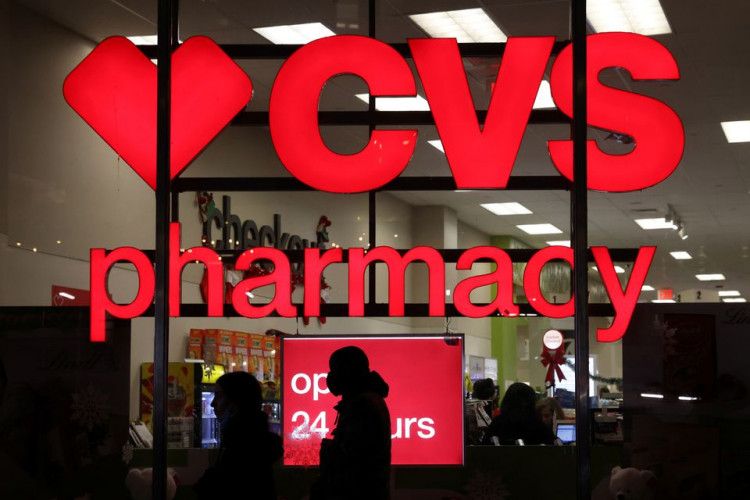CVS Health has appointed longtime executive David Joyner as its new president and CEO, replacing Karen Lynch amid the company's ongoing financial struggles. The leadership change, effective as of Thursday, comes as CVS contends with declining profits, regulatory scrutiny, and a significant drop in its stock price, which has fallen nearly 20% this year.
The company made the announcement on Friday, revealing that Joyner, who previously led CVS's pharmacy benefits manager (PBM) unit, Caremark, would take the helm. This transition occurs at a challenging time for the pharmacy giant, which is grappling with rising medical costs in its Aetna insurance division, increased pressure on its retail pharmacy business, and ongoing investigations into its business practices by federal regulators.
CVS's board chairman, Roger Farah, who has taken on the additional role of executive chairman, expressed confidence in Joyner's ability to lead the company through these difficulties. "We believe David and his deep understanding of our integrated business can help us more directly address the challenges our industry faces," Farah said in a statement. Farah also noted that Joyner's extensive experience within CVS and the pharmacy benefits sector makes him well-positioned to advance operational improvements.
Joyner, a veteran of CVS who rejoined the company in 2023 after a brief retirement, previously served in key leadership roles, including executive vice president of sales and marketing. "I came back to CVS Health in 2023 because I believed I could give more to the company, and I take this opportunity today for the same reason," Joyner said in a statement.
Karen Lynch, who had served as CEO since 2021, stepped down not only from the chief executive position but also from the company's board of directors. Under her leadership, CVS had attempted to navigate a complex landscape marked by rising medical costs and shifting consumer spending habits in its retail operations. However, the company faced persistent headwinds, leading to multiple profit guidance cuts this year and the announcement of plans to reduce costs by $2 billion over the coming years.
CVS is also under mounting regulatory pressure. The Federal Trade Commission (FTC) filed a formal complaint against CVS's Caremark division and two other major PBMs-Cigna's Express Scripts and UnitedHealth's Optum-alleging that they engaged in anti-competitive practices that inflated insulin prices for patients. This legal scrutiny is likely to intensify as both political parties debate reforms to the pharmaceutical supply chain, with PBMs being a key focus.
In addition to the regulatory challenges, CVS's financial outlook has deteriorated significantly. The company warned investors on Friday that its upcoming third-quarter earnings, set to be released on November 6, will fall short of Wall Street's expectations. CVS anticipates adjusted earnings per share (EPS) in the range of $1.05 to $1.10, well below the analyst consensus of $1.70. This disappointing forecast reflects higher-than-expected medical costs, particularly from its Medicare Advantage and Individual Exchange businesses, as well as elevated medical benefits ratios.
The medical benefit ratio, which measures the percentage of premiums spent on medical claims, is projected to rise to approximately 95.2% for the third quarter-up from 85.7% during the same period last year. A higher ratio typically signals increased medical spending relative to income from premiums, putting further strain on the company's profitability.
The financial pressures facing CVS have also led to speculation about the company's future structure. Reports in recent months have suggested that CVS's board has engaged strategic advisors to explore options for restructuring the company, including a possible split of its retail and insurance businesses. However, a company spokesperson told CNBC on Friday that CVS will move forward intact for the time being.
Beyond financial challenges, Joyner will also need to navigate the broader landscape of healthcare reform and policy changes that could impact the pharmacy industry. CVS's Medicare Advantage business, which has seen rising costs as more seniors undergo delayed medical procedures following the pandemic, remains a critical component of the company's long-term growth strategy. CVS executives had previously set a target of improving margins by 100 to 200 basis points in this business by next year, though achieving that goal now appears more difficult given the current environment.
Looking ahead, CVS has its sights set on stabilizing its financial performance and addressing the external pressures it faces. While Joyner's appointment signals a renewed focus on operational improvements and navigating the regulatory landscape, the company's success in overcoming these challenges will be closely watched by investors and regulators alike.
CVS's stock, which has already faced a sharp decline this year, dropped further in pre-market trading on Friday following the announcement of lower-than-expected earnings. As of the latest check, CVS shares were down 12.3%, trading at $55.87.





